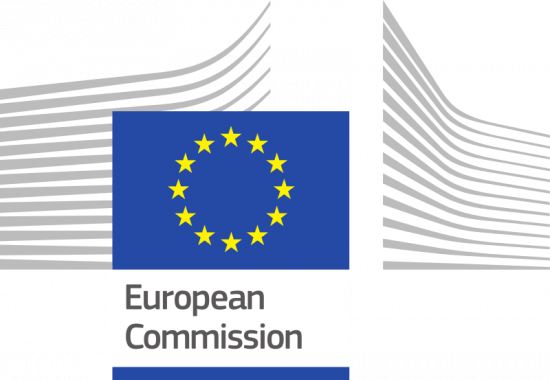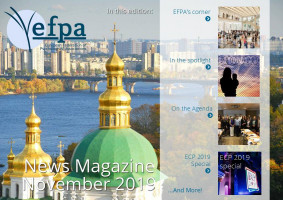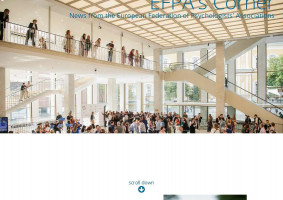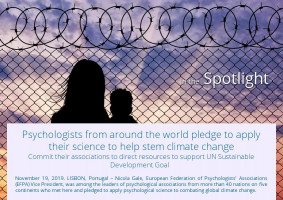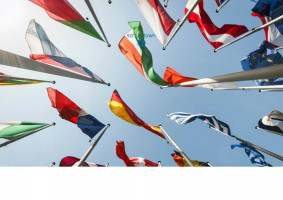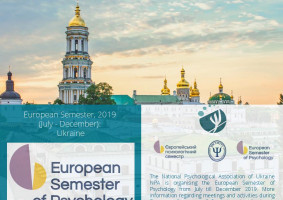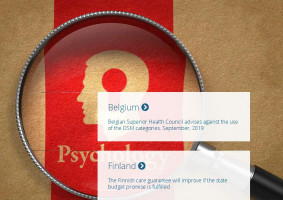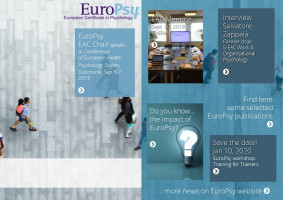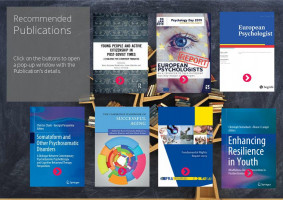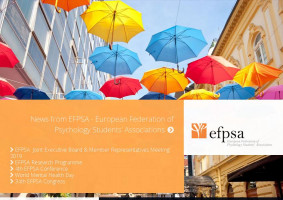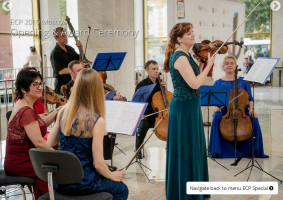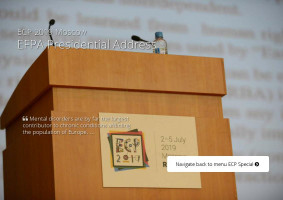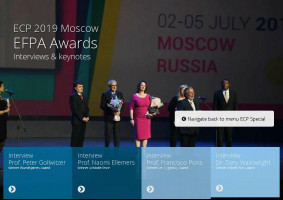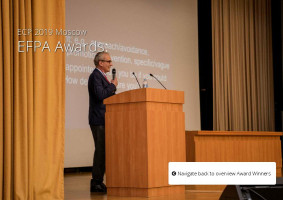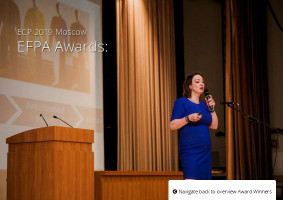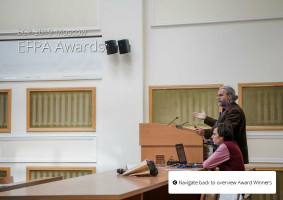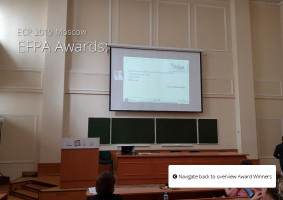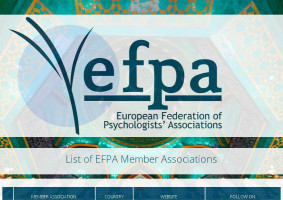EU Health Programme Conference
The Square, Mont des Arts, 1000 Brussels
30 September 2019
By: Nicola Gale
The annual EU Health Programme Conference 2019 was attended for EFPA by Sabine Steyaert EFPA Director and Nicola Gale Vice President and Treasurer.
The conference was organised by The Consumers, Health, Agriculture and Food Executive Agency (Chafea) which is an Executive Agency set up by the European Commission to manage four EU programmes on its behalf, including Health. Chafea works in close cooperation with the European Commission and in particular with the Directorate General for Health and Food Safety - DG SANTE, whose work is highly relevant to many psychologists and EFPA Member Associations.
The Conference was opened by Véronique Wasbauer, Director Consumers, Health, Agriculture and Food Executive Agency who made some important points about collaboration, using the 24 European Reference Networks across 26 countries for rare diseases an example of expert cooperation for the benefit of EU citizens.
Vytenis Andriukaitis, European Commissioner for Health and Food Safety, in a keynote address, started by recalling the World Health Organisation's definition of health. Health he said is "a state of complete physical, mental, and social well-being and not merely the absence of disease or infirmity", adding that “this is a definition that we should use as our baseline at all times”. This certainly resonates for psychologists.
He set the scene well, noting that while the EU health programme is dedicated mostly to the second part of the definition - to disease prevention, to specific topics related to health care and cure systems, obesity, cancer, vaccination, e-health, etc., the first part of definition requires a “‘Health in all policies’ approach, addressing social, environmental, commercial, behavioural determinants and main risk factors, which affect people’s health”. He spoke about wanting a more resilient and inclusive Europe for all citizens, and the resources required to achieve that, where for health promotion and disease prevention, as many of us know from our own country advocacy and policy influencing experience, there is an imbalance between the need and the budget allocation.
Examples of work done under the four objectives of the Health Programme 2014-2019 (health promotion and disease prevention, cross border health threats, innovative, efficient and sustainable health systems, access to healthcare, were then reviewed by different speakers, emphasising results, and direct benefit to EU citizens as a result of the work. As one example, much collaborative work had been done on capacity building, sharing knowledge and developing improvement plans around integrated care.
Anne Bucher, Director-General, DG SANTE, European Commission, set the scene for the new Commission and approach to health, emphasising multi year funding to increase coherence, and integration with the European Social Fund and also Horizon Europe Funding 2021-2027. Horizon Europe will have a major focus on six global challenges one of which, and the first one listed, is health. Irene Norstedt, DG RTD, European Commission, spoke in more detail about Health Research in Horizon Europe, and the three pillar approach that has gained political agreement of Excellent Science, the Global Challenges, and Innovation, underpinned by widening participation and spreading excellence.
Their vision is for a sustainable, fair and prosperous future for people and planet based on European values, with tackling climate change, helping achieve the UN Sustainable Development Goals, and boosting competitiveness and growth as the main targets. For the European Regional Development Fund, Wallis Goelen, Adviser, DG REGIO, European Commission, had much to say about enabling equal access to healthcare, about supporting social cohesion and reducing poverty risks, prevention, more person centred care, support for vulnerable people, older people, people with disabilities, and those in remote areas. She wants a shift to more community based and integrated care, and digital solutions.
Round tables followed on the four objectives including Objective 3: 'Contribute to innovative, efficient and sustainable health systems' where topics of interest included structural efficiency approaches such as shared safety reviews, giving IT funding only to interoperable systems, and sharing knowledge to remove blocks and barriers to care. From a psychology perspective, it was interesting to initiate through the discussion tool sli.do a conversation around the process for building trust to enable between country buy in to these sorts of efficiency initiatives.
A round table on Objective 4: 'Facilitate access to better and safer healthcare for Union citizens' picked up on antimicrobial resistance (AMR) and again during the session interest in the audience built in relation to the behavioural aspects of this vital healthcare topic for both patients and physicians.
Martin Seychell, Deputy Director-General, DG SANTE, European Commission wrapped up the event saying that this next Commission is a time of unprecedented opportunity to make a difference in health given the political attention it now commands.
While much of the focus of the Conference was physical health and infrastructure, the contribution psychology can make was evident throughout, and as the day progressed the sli.do tool showed it was increasingly of interest to other delegates. We have opportunities in a number of areas that were presented, such as the Commission’s Joint Action on Vaccination campaign, AMR, and the structural reforms towards community and integrated care, to name but a few. If any readers are already working in these fields please do get in touch with us at EFPA.
The programme of the 3rd EU Health Program 2014-2020 conference and recorded sessions are available here:
The programme
Recorded sessions
Click on the photo's here below to view the photo album:
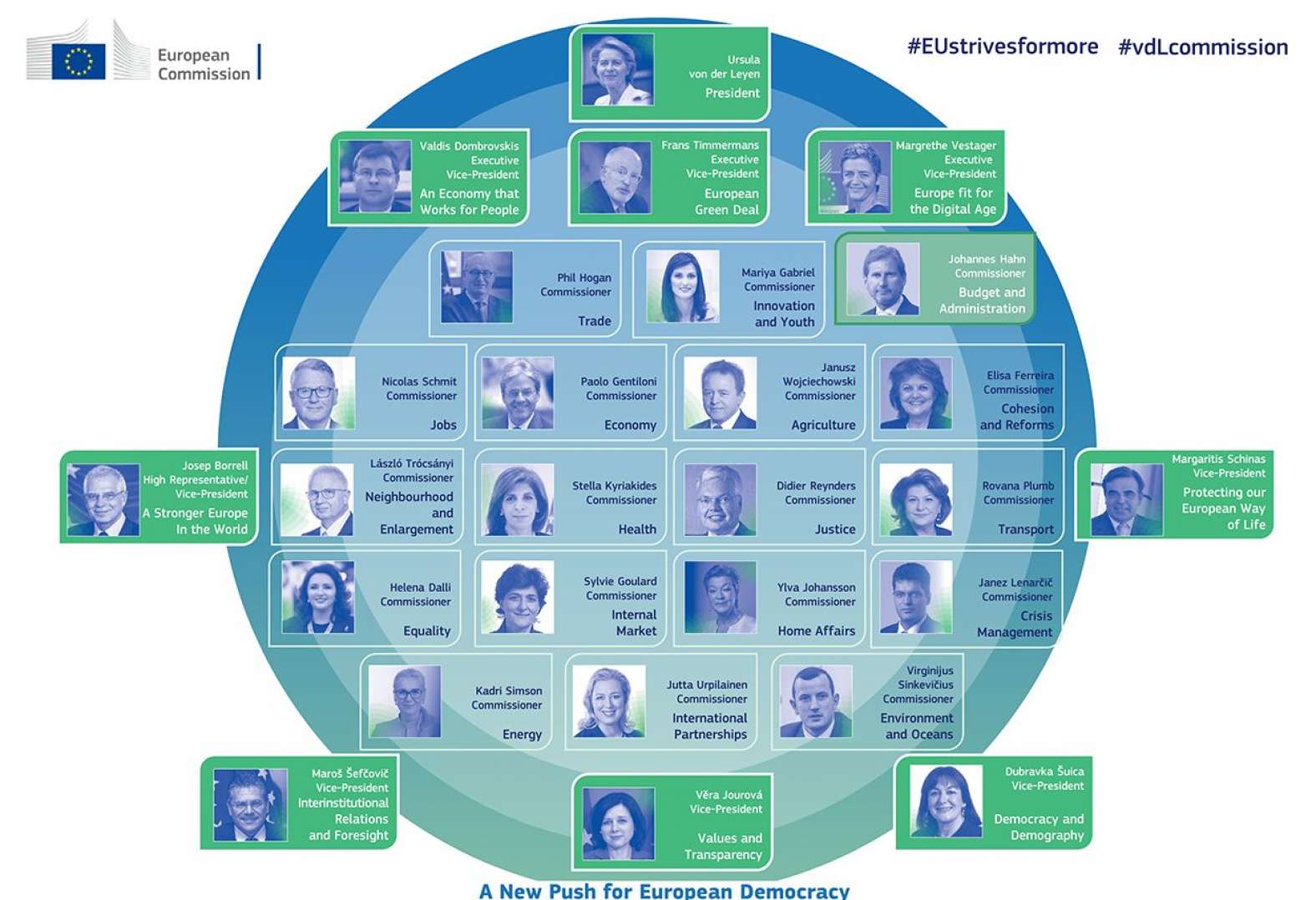
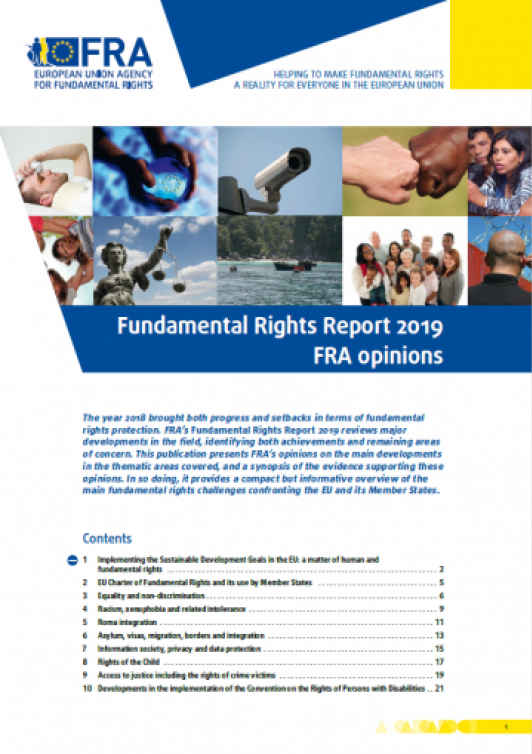
Fundamental Rights Report 2019 – European Union Agency for Fundamental Rights (FRA) opinions
June 2019
The year 2018 brought both progress and setbacks in terms of fundamental rights protection. FRA’s Fundamental Rights Report 2019 reviews major developments in the field, identifying both achievements and remaining areas of concern. This publication presents FRA’s opinions on the main developments in the thematic areas covered, and a synopsis of the evidence supporting these opinions.
The report provides a compact but informative overview of the main fundamental rights challenges confronting the EU and its Member States.
Download FRA opinions in PDF from here
Download full report in "Recommended Publications" page of this edition of the Newsmag
Blogs & newsletters
Here is a list of interesting blogs to follow and newsletters to subscribe to:
Clinical Psychology in Europe
Health and Care Professions Council (UK)
European Commission Public Health-EU: e-newsletter
International Association of Medical Regulatory Authorities (IAMRA)
European Parliament IMCO (Internal Market Committee)
United Kingdom: Professional Standards Authority (UK)
European Social Network ESN
Ireland: CORU Regulating Health + Social Care Professionals (Ireland)
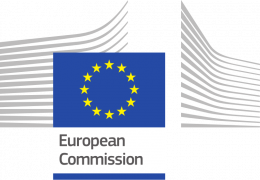
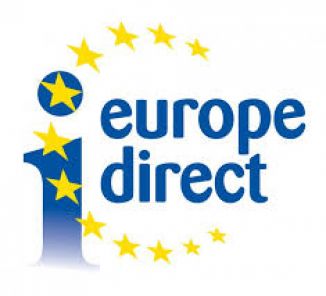
In person:
All over the European Union there are hundreds of Europe Direct information centres. You can find the address of the centre nearest you at: https://europa.eu/european-union/contact_en
On the phone or by email:
Europe Direct is a service that answers your questions about the European Union. You can contact this service:
by freephone: 00 800 6 7 8 9 10 11 (some operators may charge for these calls),
at the following standard number: +32 22999696 or
by email via: https://europa.eu/european-union/contact_en
EU publications
You can download or order free and priced EU publications here
Multiple copies of free publications may be obtained by contacting Europe Direct or your local information centre
EU law and related documents
For access to legal information from the EU, including all EU law since 1952 in all the official language versions, go to EUR-Lex at:
http://eur-lex.europa.eu
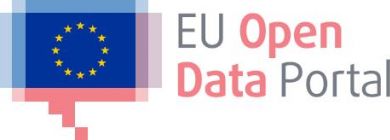
Open data from the EU
The EU Open Data Portal ( http://data.europa.eu/euodp/en)
provides access to datasets from the EU. Data can be downloaded and reused for free, for both commercial and non-commercial purposes.
_w466_h492_1.png)
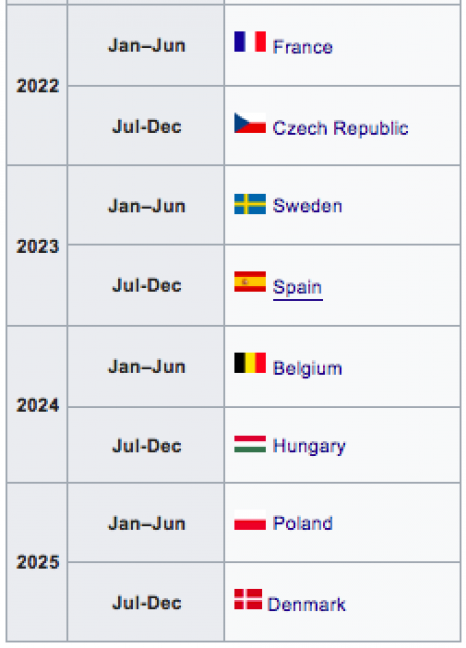
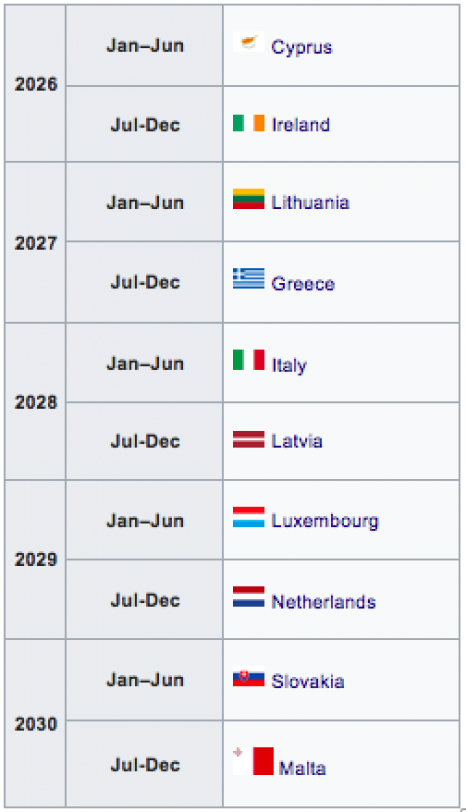
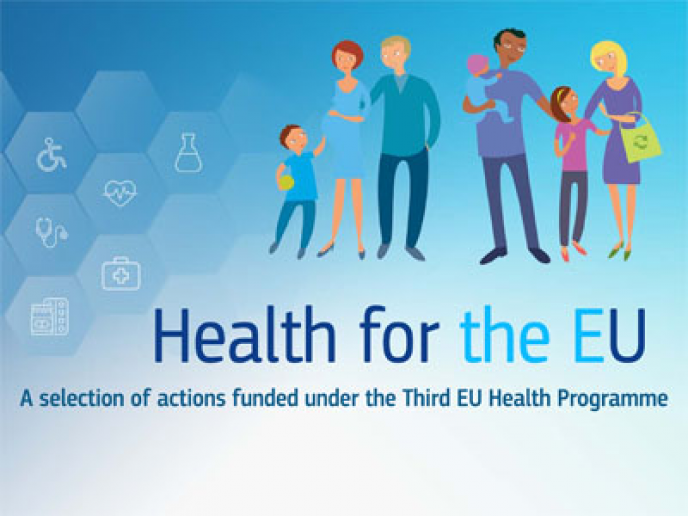
_w300_h300_1.jpg)
_w300_h300_1.jpg)
_w300_h300_1.jpg)
_w300_h300_1.jpg)
